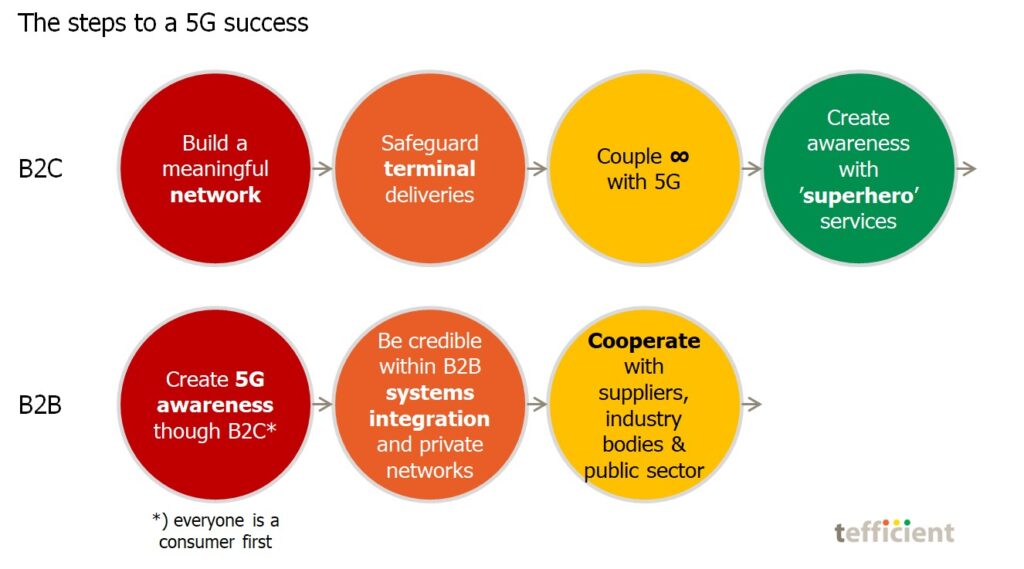There are two types of operators when it comes to 5G: Those who act and those who wait.
Management of the latter type are often quoted saying that it’s within B2B that 5G will make a difference. It seems to be an excuse for not taking any action on B2C – or even for not taking any 5G action at all.
South Korean operators didn’t wait. It’s not exactly their style. Consequently, South Korea has the largest 5G adoption in the world, the highest data usage levels, the widest covering 5G networks and, of course, the fastest networks. Read more here: Nine months with 5G: 4.7 million subs – each using 27 GB per month.
But what are the steps to a 5G success?
We were asked this question at a 5G-focused conference lately. Our answer is highly influenced by Korea – see How South Korea’s operators drive demand for 5G. This is how we’d like to answer it – in the simplest way possible, using one picture:

The four steps to a B2C success are pretty much describing what the Korean operators did:
- Tens of thousands of base stations at launch – combined with a rapid rollout in the following months
- Agreements safeguarding smartphone deliveries from Samsung and LG even when sales exceeded expectations (causing some European operators not to get any)
- A equal sign between 5G and unlimited: 5G means unlimited and unlimited means 5G
- ‘Superhero‘ services within gaming, entertainment, AR, sports – to create awareness (much more than ROI)
What is less known is that the Korean operators have come far also in B2B. What they have realised is that awareness has to come first – and that B2B awareness starts with making every consumer aware. Every business person is a consumer first. Think about it: On which PC did you first experience Windows 10? On your corporate or on your private PC?
Secondly, you have to have a brand within IT systems integration. In a European perspective, you suddenly also need credibility within private networks. You might need a bit of edge computing credibility as well. Most operators aren’t in a position where they are seen as natural business partners in these areas yet. It can be built, but you might also need to acquire a company that has that credibility and brand.
Thirdly you have to be open to full cooperation with global and local suppliers, with industry bodies and with the public sector. None of that would give you much revenue in the short term, but without these partners, you won’t come far. You need to know the business of every sector you are trying to help.
But as with any generation, it all starts with building a meaningful network.
